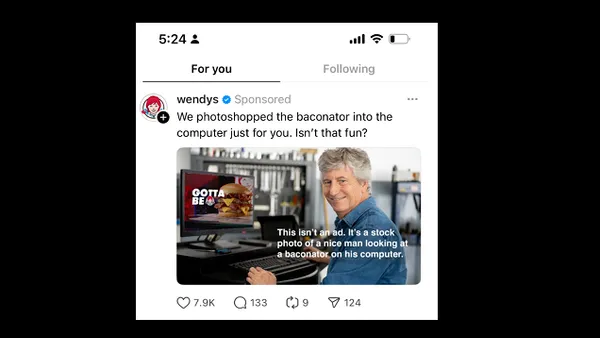Dive Brief:
- The Federal Trade Commission (FTC) has had a busy week announcing settlements with brands over disclosures about paying influencers for marketing content.
- The most recent news is a final order prohibiting YouTube gaming network Machinima from misrepresenting that paid endorsers in influencer campaigns are independent reviewers, a case that was announced last September.
- Earlier this week the FTC announced a similar settlement with retailer Lord & Taylor over a campaign that included native ads on an online publisher’s website and an influencer component on Instagram.
Dive Insight:
Marketers have been put on notice: the FTC means business with its disclosure guidelines on sponsored content.
The final order in the Machinima case "requires Machinima to ensure that all of its influencers are aware of their responsibility to make required disclosures, requires Machinima to monitor its influencers’ representations and disclosures, and prohibits Machinima from compensating influencers who make misrepresentations or fail to make the required disclosures,” according to an FTC statement.
The agency's most recent guidelines on the marketing area were released at the end of December, specifically targeted to publishers of native ads. The federal regulator ended the guidelines with a statement that implied the agency was willing to add more teeth to the guidelines if all parties involved in sponsored content couldn’t adequately self-regulate.
Ron Urbach, chairman of law firm Davis & Gilbert LLP, told Marketing Dive regarding the Lord & Taylor settlement that, "In a world of integrated marketing and real time decision making, advertisers need to build the systems and processes to ensure that native advertising is legally compliant."
He predicts we will "absolutely" see more FTC actions in this area involving agencies and those who work with the advertiser.














